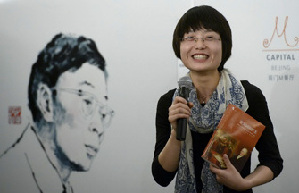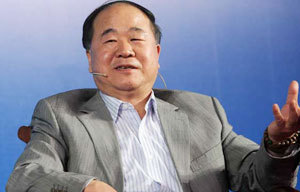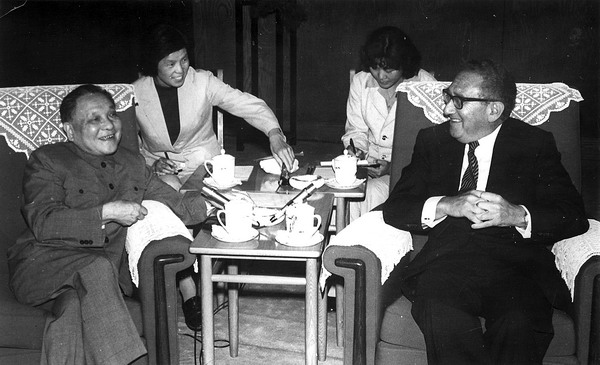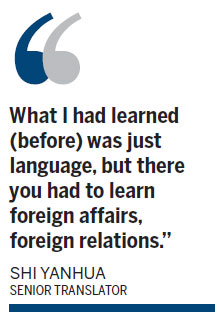Communicating across boundaries and cultures
By Mike Peters ( China Daily ) Updated: 2014-03-16 08:08:33
|
Shi Yanhua (left, back row) acts as an English translator during a meeting between Chinese leader Deng Xiaoping and former US secretary of State Henry Kissinger in 1982. Provided to China Daily |
"The American journalists had checked to find out what flight the Chinese delegation would take, and they booked the same ticket. That impressed me very much."
Today, Shi drops English phrases like "the devil is in the details" into conversations as casually as Donald Trump might. But it wasn't always so natural.
"It was by accident that I studied language," she says.
After her graduation from high school in Shanghai, she was recruited when the foreign ministry went looking for bright young people to study at what was then its Foreign Languages Institute.
The political environment was very different then. In high school she'd studied Russian.
"China was secluded and didn't have many relations with Western countries," she says.
"But I thought English was the language of the future. So at university we just learned English from our professors - who were very good, but they had learned from books, and we didn't have much chance to listen to native speakers or to read newspapers. We read classic English literature. I liked Charles Dickens best. But I also read Jane Austen and other writers."
While she was taking post-graduate courses in English in 1964, China and France established diplomatic relations.
"France was the first major Western country to do that, and the late premier Zhou Enlai thought there would be an opening-up of our diplomacy. We would need more interpreters," she says.
She soon found herself in the foreign ministry's translation department.
"What I had learned (before) was just language, but there you had to learn foreign affairs, foreign relations. For instance, when I was asked to translate a diplomatic note, I didn't know the formula and the style."
She also had to learn to type, on a clunky old-fashioned typewriter.
"You couldn't afford to make mistakes. In the translation department, if there were three mistyped letters, you had to retype the whole letter."
After the numbing period of the "cultural revolution" came the surprise opportunity to go to New York.
"As the plane was approaching New York, I saw all of the parked cars at JFK airport -they looked like toys in the sunshine. I was amazed. So many cars! In Beijing at that time, we didn't have any private cars," she remembers.
"The buses we had were manufactured in Eastern European countries and moved very slowly - we called them 'the grandfathers' or 'grandpas'."
It was the first time Shi had taken such a long flight.
"So when we landed at JFK, my ears could hardly hear anything," she says.
|
 |
 |
| Translators act as bridge between China and France | Translators need to strike a balance |
|
|
|
|
|
|
|
|























 Raymond Zhou:
Raymond Zhou: Pauline D Loh:
Pauline D Loh: Hot Pot
Hot Pot Eco China
Eco China China Dream
China Dream China Face
China Face





